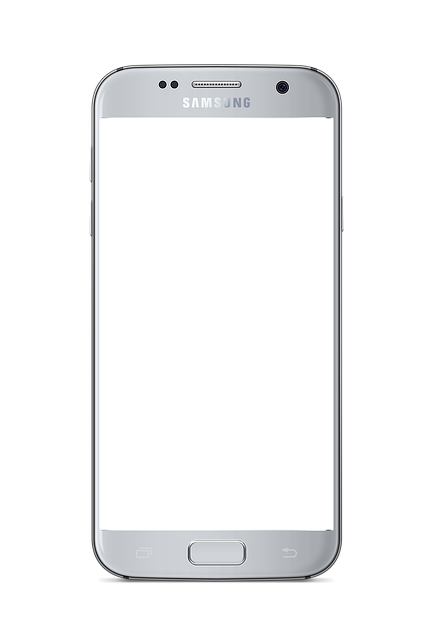Spam calls are a significant problem in New York, particularly in competitive markets like Syracuse, but businesses can combat them through advanced tools, AI filters, and legal advice from spam call law firms or lawyers specializing in TCPA cases. New York's anti-spam laws, including the TCPA, offer robust protection. Entrepreneurs should invest in cutting-edge spam prevention technologies, educate their teams, regularly review call logs, and partner with reputable legal professionals to ensure compliance and avoid financial losses.
Syracuse entrepreneurs face a growing challenge from relentless spam calls, impacting their operations and profitability. Understanding the intricate web of legal protections, such as the Telephone Consumer Protection Act (TCPA) in New York, is essential to navigating this landscape. This article explores innovative spam prevention technologies, delving into their investment potential while offering practical strategies to combat spam calls effectively. Discover how entrepreneurs can stay ahead of this ever-evolving threat and thrive in a ‘how to stop spam calls New York’ world. Engage with leading spam call law firms New York and lawyers specializing in TCPA cases New York to fortify your defenses.
Understanding the Spam Problem in New York and Its Impact on Entrepreneurs
Spam calls are a significant and persistent issue in New York, impacting not just individual consumers but also entrepreneurs across the state. With the rise of automated call systems, many businesses, especially those in competitive markets like Syracuse, face an influx of unwanted phone spam, hindering their ability to connect with genuine customers. This deluge of nuisance calls can lead to decreased productivity, increased operational costs, and a tarnished reputation for businesses already struggling to thrive.
New York has implemented strict regulations, such as the Telephone Consumer Protection Act (TCPA), to combat this problem, offering both legal recourse and a safety net for consumers. However, staying ahead of evolving spamming tactics remains challenging. Entrepreneurs must stay informed about the latest developments in spam prevention tech and consider employing innovative solutions, including advanced call screening tools, AI-driven spam filters, and legal strategies involving reputable spam call law firms or lawyers specializing in TCPA cases. By adopting these measures, New York’s business community can effectively navigate the complex landscape of spam protection while ensuring compliance with state laws.
Legal Framework: The Telephone Consumer Protection Act (TCPA) and Anti-Spam Laws in New York
The Telephone Consumer Protection Act (TCPA) and New York’s Anti-Spam Laws provide significant protections for residents against unwanted spam calls. These laws empower individuals to take action against violators, offering a clear legal framework for how to stop spam calls in New York. If you’re facing persistent spam calls, the first step is to familiarize yourself with these regulations. The TCPA restricts the use of automated dialing systems and prerecorded messages, while New York’s Anti-Spam Laws further safeguard consumers by prohibiting deceptive or false marketing practices.
Knowing your rights under these laws is crucial. A spam call law firm or spam call lawyers in New York can guide you on how to file a complaint with the Federal Communications Commission (FCC) and state authorities. With their expertise, they can also help you understand the legal avenues to seek damages for any harassment or financial loss resulting from spam calls. By leveraging these laws, Syracuse entrepreneurs can contribute to creating a safer digital environment while exploring investment opportunities in cutting-edge spam prevention technologies.
Innovative Spam Prevention Technologies and Their Investment Potential
Spam prevention technologies are evolving rapidly, offering innovative solutions to combat unwanted calls and messages, especially in densely populated areas like New York. Entrepreneurs in Syracuse have a unique opportunity to invest in cutting-edge tools that can effectively block spam calls and protect consumers. Technologies such as advanced AI algorithms, machine learning models, and sophisticated filtering systems are revolutionizing the way we handle spam. These tools learn from user behavior and patterns to identify and block suspicious or unwanted communications, ensuring a safer digital environment.
The potential for investment in this sector is significant, given the growing demand for effective spam prevention methods. With stringent spam call laws like the TCPA (Telecommunication Consumer Protection Act) in place, businesses are increasingly seeking legal protection and innovative solutions. A spam call law firm or lawyer specializing in TCPA cases can provide valuable expertise, ensuring compliance and offering robust legal support to clients. Syracuse entrepreneurs can capitalize on this trend by investing in tech startups that develop these cutting-edge prevention tools, contributing to a quieter, more pleasant digital experience for New York residents.
Strategies for Syracuse Entrepreneurs to Stay Ahead of Spam Calls and Maximize Profits
Staying ahead of spam calls is a strategic imperative for Syracuse entrepreneurs aiming to maximize profits. Implement robust caller ID and blocking software tailored for business use. Educate your team to recognize suspicious calls and report them immediately. Don’t hesitate to consult with a Spam Call law firm New York specializing in TCPA compliance; they can provide guidance on best practices and help craft policies that protect your business from costly violations.
Beyond technical solutions, foster a culture of vigilance. Regularly review call logs and analyze trends to identify emerging spam patterns. Stay informed about the latest Spam Call laws New York and industry regulations. Partnering with a reputable Spam call lawyers New York can ensure your business remains compliant, shielding you from potential legal repercussions and financial losses associated with unsolicited calls.






